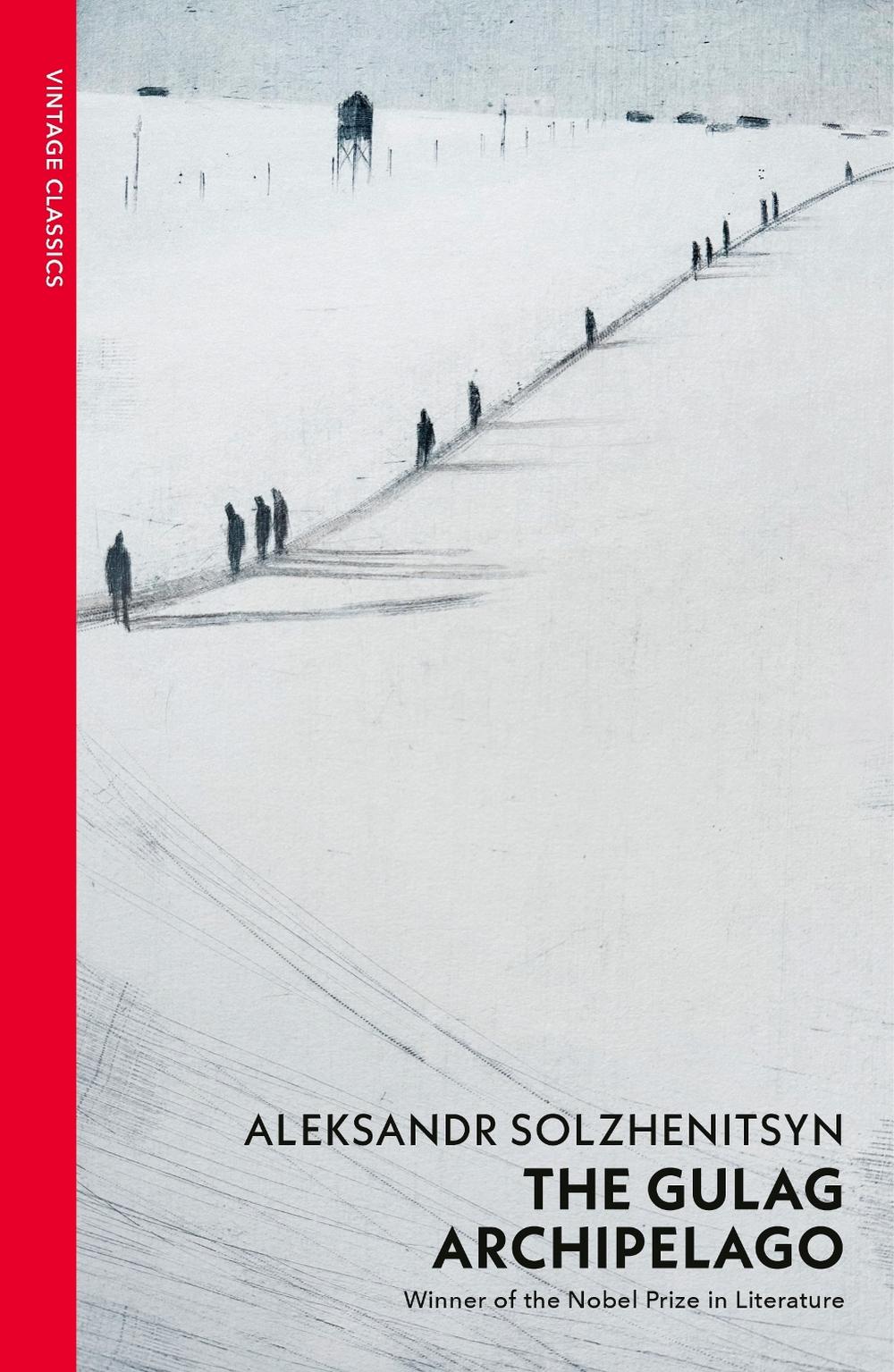
$24.00
- Paperback
576 pages
- Release Date
18 November 2018
Summary
Solzhenitsyn’s masterwork about those who dared to oppose Stalin and the lives shaped, devastated and wasted by the Soviet regime.
Solzhenitsyn spent eleven years in labour camps and in exile. This book is his masterwork, based on his own experiences as well as the testimony of some 200 survivors. A vast canvas of camps, prisons, transit centres and secret police, of informers and spies and interrogators but also of everyday heroism, it chronicles the story of those who dared to oppos…
Book Details
| ISBN-13: | 9781784871512 |
|---|---|
| ISBN-10: | 1784871516 |
| Author: | Aleksandr Solzhenitsyn, Jordan Peterson |
| Publisher: | Vintage Publishing |
| Imprint: | Vintage Classics |
| Format: | Paperback |
| Number of Pages: | 576 |
| Release Date: | 18 November 2018 |
| Weight: | 402g |
| Dimensions: | 199mm x 133mm x 38mm |
You Can Find This Book In
What They're Saying
Critics Review
To live now and not to know this work is to be a kind of historical fool missing a crucial part of the consciousness of the age
To live now and not to know this work is to be a kind of historical fool missing a crucial part of the consciousness of the age * Guardian *The ferocious testimony of a man of genius * London Magazine *What gives the book its value is the sound it gives out; the harsh roar give out by a wise and experienced animal as a warning that the herd is in danger * Sunday Telegraph *He is one of the towering figures of the age as a writer, as moralist, as hero… in The Gulag Archipelago he has acheived the impossible * Observer *It is impossible to name a book that had a greater effect on the political and moral consciousness of the late twentieth century * New Yorker *
About The Author
Aleksandr Solzhenitsyn
Aleksandr Solzhenitsyn was born in 1918 and grew up in Rostov-on-Don. He graduated in Physics and Mathematics from Rostov University and studied Literature by correspondence course at Moscow University. In World War II he fought as an artillery officer, attaining the rank of captain. In 1945, however, after making derogatory remarks about Stalin in a letter, he was arrested and summarily sentenced to eight years in forced labour camps, followed by internal exile. In 1957 he formally rehabilitated, and settled down to teaching and writing, in Ryazan and Moscow. The publication of One Day in the Life of Ivan Denisovich in Novy Mir in 1962 was followed by publication, in the West, of his novels Cancer Ward and The First Circle. In 1970 he was awarded the Nobel Prize for Literature, and in 1974 his citizenship was revoked and he was expelled from the Soviet Union. He settled in Vermont and worked on his great historical cycle The Red Wheel. In 1990, with the fall of Soviet Communism, his citizenship was restored and four years later he returned to settle in Russia. Aleksandr Solzhenitsyn died in August 2008.
Returns
This item is eligible for free returns within 30 days of delivery. See our returns policy for further details.




